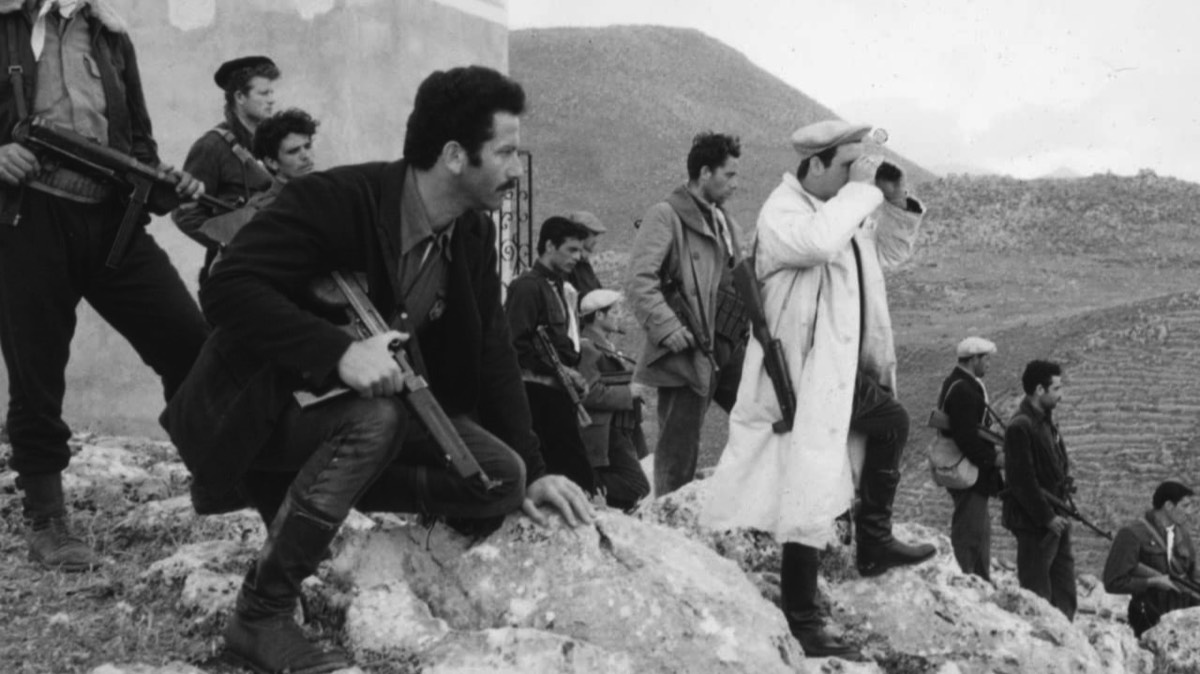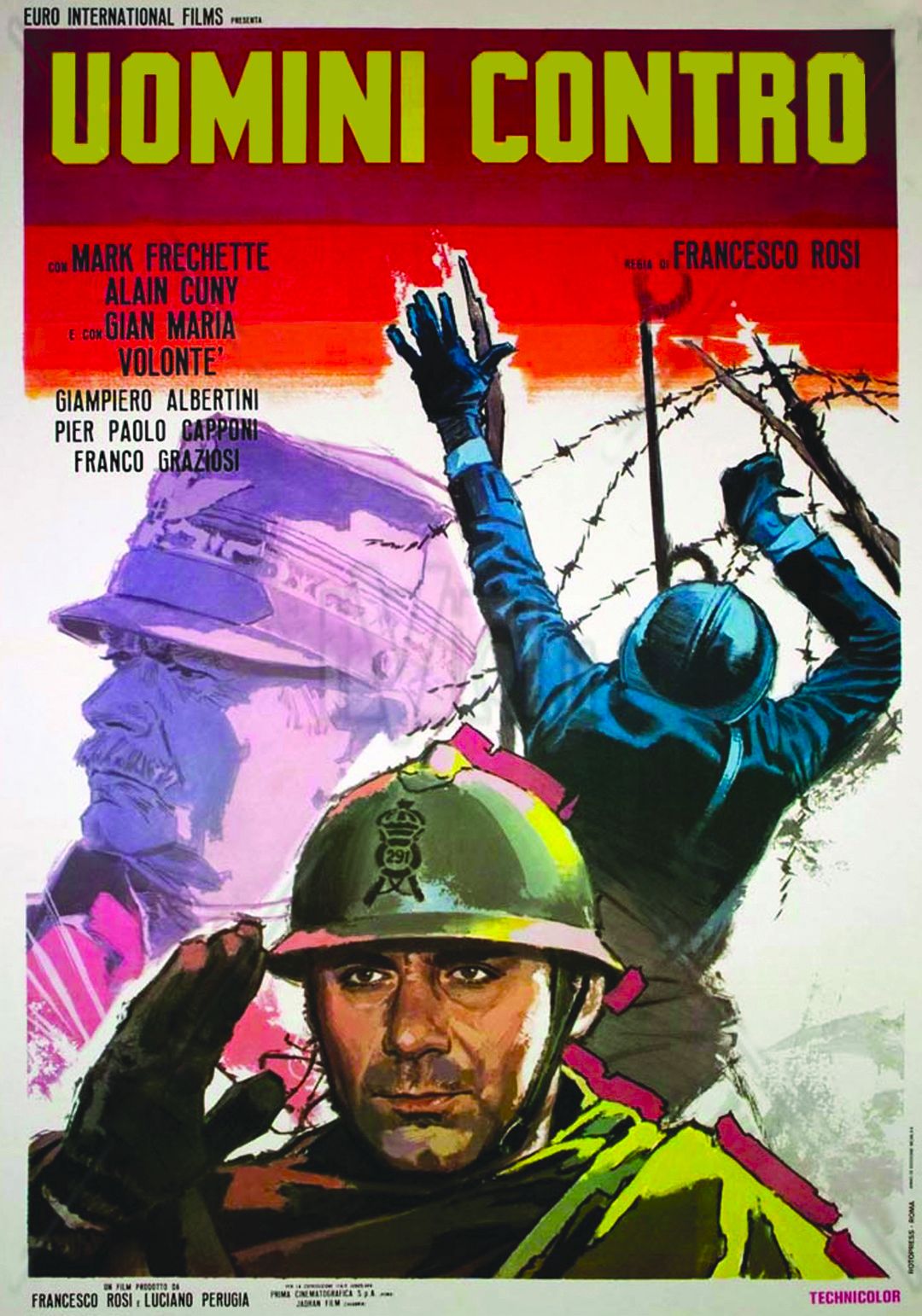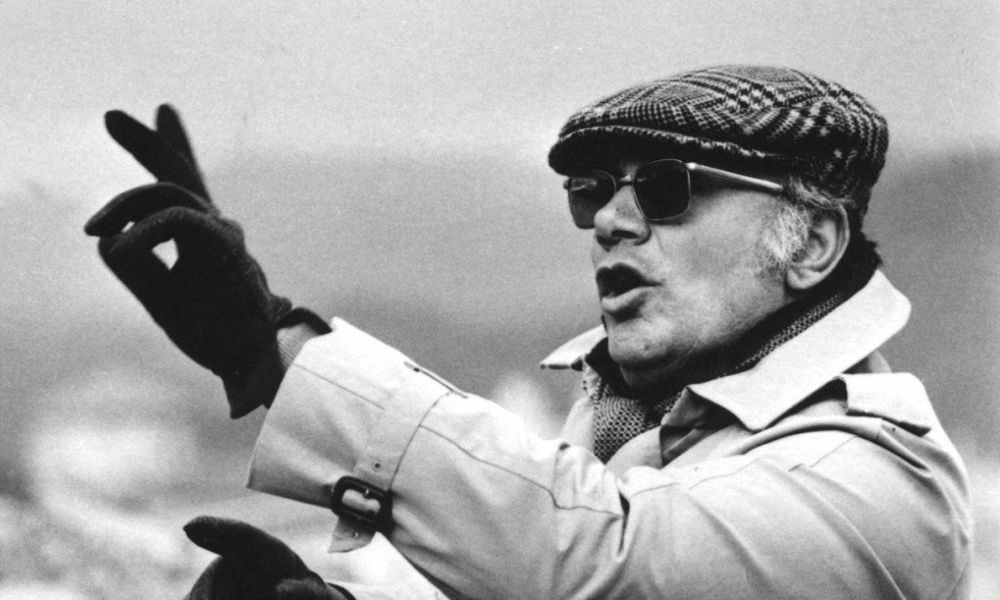"A master of the political exposé, Rosi's work reflected much wider sociopolitical neuroses. To understand him, then, is to understand Italy during the political and social upheaval of "the years of lead", when terrorism was rife and sides were hard to take. He was scratching a very Italian kind of itch. Rosi is a rare creature indeed - an award-winning filmmaker little known outside his own shores." - Russ Hunter (501 Movie Directors, 2007)
Francesco Rosi
Director / Screenwriter / Producer
(1922-2015) Born November 15, Naples, Campania, Italy
Top 250 Directors
(1922-2015) Born November 15, Naples, Campania, Italy
Top 250 Directors
Key Production Countries: Italy, France
Key Genres: Drama, Political Drama, Docudrama, War Drama, Rural Drama, Crime, Biopic, Crime Drama
Key Collaborators: Piero Piccioni (Composer), Pasqualino De Santis (Cinematographer), Tonino Guerra (Screenwriter), Ruggero Mastroianni (Editor), Andrea Crisanti (Production Designer), Franco Cristaldi (Producer), Gian Maria Volonte (Leading Actor), Gianni Di Venanzo (Cinematographer), Mario Serandrei (Editor), Raffaele La Capria (Screenwriter), Accursio Di Leo (Character Actor), Salvo Randone (Leading Actor)
Key Genres: Drama, Political Drama, Docudrama, War Drama, Rural Drama, Crime, Biopic, Crime Drama
Key Collaborators: Piero Piccioni (Composer), Pasqualino De Santis (Cinematographer), Tonino Guerra (Screenwriter), Ruggero Mastroianni (Editor), Andrea Crisanti (Production Designer), Franco Cristaldi (Producer), Gian Maria Volonte (Leading Actor), Gianni Di Venanzo (Cinematographer), Mario Serandrei (Editor), Raffaele La Capria (Screenwriter), Accursio Di Leo (Character Actor), Salvo Randone (Leading Actor)
"Adapting neo-realist methods to his own purposes, Francesco Rosi became a leading figure in political cinema during the '60s. While his more recent films have tended toward less controversial, art-house subjects, his finest work remains provocative and gripping… Questioning and criticising official positions of crime, politics and social problems, he has merged the didactic qualities of documentary realism with the accessibility of traditional fictional genres." - Geoff Andrew (The Film Handbook, 1989)
"The French critic Michel Ciment once counted Mr. Rosi among “the three last giants of Italian cinema,” the others being Federico Fellini and Michelangelo Antonioni. His films won top prizes at the Cannes, Venice and Berlin film festivals. Yet he never acquired the kind of international fame many of his peers knew… Along with his fellow directors Pier Paolo Pasolini, Ettore Scola, Gillo Pontecorvo and the Taviani brothers, Paolo and Vittorio, Mr. Rosi absorbed the social-documentary style of Italian neorealism, which flowered in the years immediately after World War II, to create a highly politicized post-neorealist Italian cinema in the 1960s and ’70s." - John Anderson (The New York Times, 2015)

Salvatore Giuliano (1962)
"After studying law, serving in the military and working as a radio journalist, he entered films in the 1940s as an assistant to Luchino Visconti. His first solo effort was La Sfida (1958). He is an uncompromisingly political director, known for forceful exposés of the influence of gangsters and corruption in Italian politics." - Chambers Film Factfinder, 2006
"There can be no doubt that in a career spanning half a decade Rosi produced some of the most politically-courageous, socially-committed and formally-innovative films in the Italian canon. In an Italy forever divided by political and social conflict and continually shadowed by innumerable unsolved mysteries, Rosi wielded the camera like a moral instrument in an unflinching search for truth. As a striking fulfilment of Gramsci’s dictum of a pessimism of the intelligence sustained by an optimism of the will, Rosi’s practice of an intelligent and committed civic cinema did much to restore a modicum of human dignity to Italians still living under a byzantine system of political intrigue." - Gino Moliterno (Senses of Cinema)
"Rosi is one of the most socially-conscious of all Italian directors with a hard, precise, unsentimental style which, however, occasionally leads him into over-simplification." - John Gillett (The International Encyclopedia of Film, 1972)
"The themes of my films are always more or less the same: the relationship between man and society, between man and power. And I've tried to reflect a little of Italian life of the past fifty years. I'e tried to shoe, using Italy as the context,all the problems that come from the oppression of people by power, whether it's economic power, military power, political power, or the power of the Mafia." - Francesco Rosi
Selected Filmography
{{row.titlelong}}
Francesco Rosi / Fan Club
Michel Ciment, Jean-Philippe Domecq, Gary Crowdus, Martin Scorsese, Philip French, João Batista de Andrade, Jean A. Gili, Lorenzo Codelli, Dan Georgakas, Gérard Legrand, Alex Cox, Firat Yücel.
Michel Ciment, Jean-Philippe Domecq, Gary Crowdus, Martin Scorsese, Philip French, João Batista de Andrade, Jean A. Gili, Lorenzo Codelli, Dan Georgakas, Gérard Legrand, Alex Cox, Firat Yücel.
"Fan Club"
These film critics/filmmakers have, on multiple occasions, selected this director’s work within film ballots/lists that they have submitted.
These film critics/filmmakers have, on multiple occasions, selected this director’s work within film ballots/lists that they have submitted.


